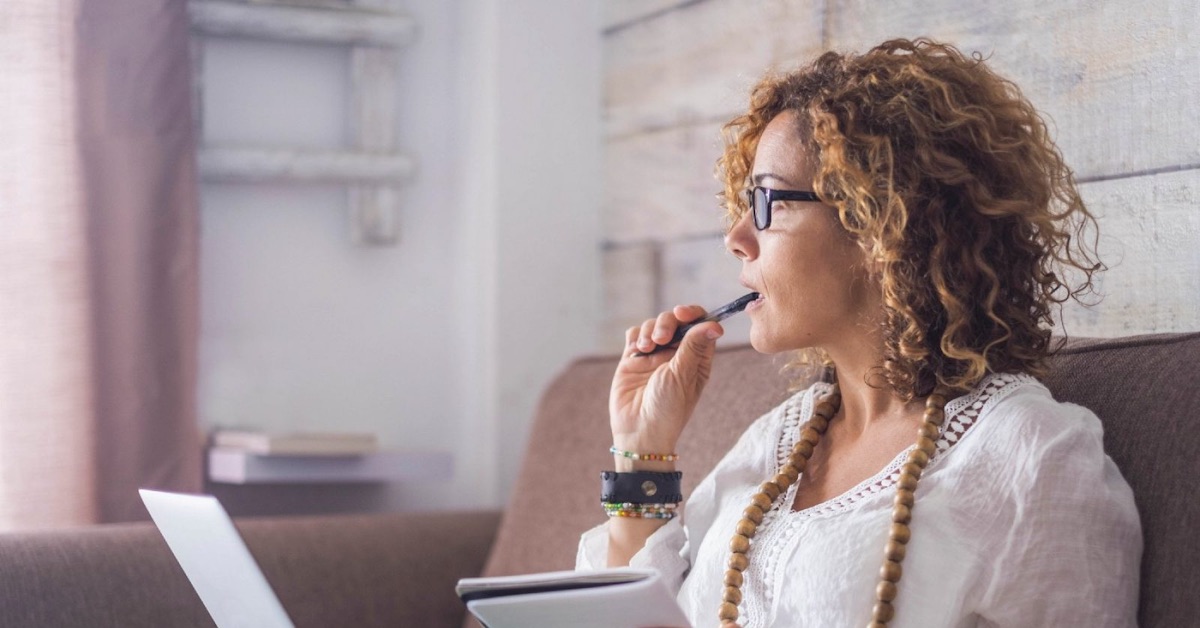Anxiety Meds, and How I Realized I Needed Them

By Taylor Aucott, Executive Assistant
March 15, 2021
I started taking anti-anxiety medication about a month ago, and I have never felt better.
This year has been tough for a whole host of reasons, for all of us. True to my nature, I took every day to remind myself that I could handle the growing stress. I could handle working from home in a small apartment during a pandemic that still seems unfinished and undefined in it’s scope of devastation, or not knowing how to clearly define working hours versus personal time, etc. I would think to myself that I was lucky to work for a company that I love, contributing to a mission I care so much about. That I should be able to remove myself from the bubbling stress and anxiety inside of me. That I can manage. That others surely have it so much worse than I do and my unrest did not deserve more care and attention. Especially considering the weekly therapy I’m lucky enough to go to and the wonderful environment that is Quartet. I shouldn’t need more. So I won’t.
This has been the norm for as long as I can remember.
Growing up I experienced my fair share of trauma. As much as I truly loathe acknowledging it as such, given the drama the word “trauma” evokes when read, it’s true. My family underwent divorce, alcoholism, and financial stress, and even experienced losing my father to suicide to name a few low points. As a child I quickly found pride in my ability to deal with the stress I was going through, thinking of it as a kind of skill, something I could actively practice. It made me think I was better equipped than a “normal” teenager, something I’ve realized was just a veil I hid behind, not a strength. I would look at friends dealing with experiences I deemed less upsetting and judge them for not being able to hold their feelings together, ultimately something I deeply regret. As I’ve gotten older, thankfully empathy has mostly filled-in that ugly hole in my heart with the help of my sister and mom, my incredible partner, some very special (and patient) friends, my therapist and now — my medication.
Starting to take anti-anxiety medication was really tough for me. I mentioned the ugly hole in my heart being mostly filled, and that’s because at some point, those who surround me couldn’t fill it, I had to be the one to do it myself. The perspective I’ve gained since starting my medication is that of a stigma created within myself. It’s been easy enough to support other people finding peace within themselves via therapy, meditation, wellness, yoga and even medication. But for me? That last piece was out of the question. That old sense of pride would creep in and my old habits took over quicker than I could shoo them away. I found myself thinking, “it’s not that bad” or “it’s not everyday” and any other excuse I could come up with to cling to the idea that I was fine and didn’t need any extra help. A muscle I am all too familiar with.
The most difficult part of admitting to myself that I may need a little extra help wasn’t admitting, it was navigating through the forest of self-caused anxiety. Habitual anxiety, I’ll call it, became my norm every single day. It was almost like I was practicing it (sound familiar?) I would think to myself, if I’m not thinking of my anxiety, then I’m not solving it. If I spend just a little more time trying to figure out where it comes from, surely I’ll be able to acknowledge it and tell it to go away. What I didn’t realize until taking medication, is that I was consistently stuck on a one-way street with forks to nowhere but further down into the depths of my own anxiety, frustration and ultimately depression. Not until I started taking medication did I even see the signs to make a U-turn. I don’t remember seeing them before, and I’m so glad I can see them now.
What I’ve realized is that stigma is real whether you or I realize or subscribe to it, or not. As someone who works in the mental health space, and attends therapy regularly, I thought that I was above it or even immune to it. I spend most days trying to help teammates solve problems that ultimately bring care to patients across the country — so surely that makes me closer to ending the stigma that surrounds mental health for others, right? But what about me? Who solves those problems for me?
Me.
And in this case, me and my doctor.
If this story sounds familiar at all — take it from me. There is no weakness in asking for help. Again, there is no weakness in asking for help. In fact, there is strength in realizing what you need. If you find yourself coming up with more and more reasons to not talk to your doctor about medication, be patient with your consideration, maybe today isn’t the day. There is no correct timeline for each of our mental health journeys. Medication isn’t for everyone, but if you read this and even for a second thought, “maybe I should try it,” allow yourself to shoo away the doubts or the shame. Talk with your doctor, explore what works for you, and align your pride with taking charge of your mental health — not ignoring it.
Stigma is all around us, but the stigmas we create against ourselves are the ones I’m promising myself to work against. Can you?
I started taking anti-anxiety medication about a month ago, and I am so glad I did.
Explore more

Quality Mental Health Care, Wherever You Are
At Quartet, we know that mental health care isn’t one size fits all.

Take Your Own Advice: A Note to Therapists on Self Care During COVID‑19
COVID-19 added a layer of complexity for mental healthcare workers, who may be experiencing their own stressors and anxieties related to the crisis.

Fighting Two Pandemics: Supporting Domestic Violence Survivors and Their Mental Health Needs During COVID‑19
For some, following the stay-at-home orders for one pandemic may render them vulnerable to another: domestic violence.



